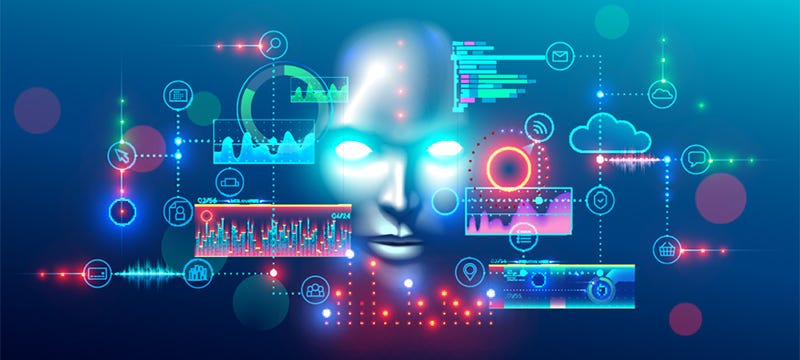Artificial Intelligence (AI) and cloud computing, two revolutionary technological trends, have been making waves in the business and tech worlds. However, the intersection of these two domains is where the real magic happens, leading to unprecedented efficiencies, capabilities, and opportunities. This comprehensive article explores the role of AI in cloud computing, understanding how these technologies interplay, their benefits, challenges, and the future trends that are set to redefine the landscape of digital transformation.
Part 1: Unpacking the Concepts
Understanding Artificial Intelligence
AI is a branch of computer science that aims to simulate human intelligence in machines. This encompasses everything from basic rule-based systems to sophisticated machine learning and deep learning models that can learn, reason, plan, perceive, and process natural language, similar to human cognitive functions.
Understanding Cloud Computing
Cloud computing is a model for delivering information technology services where resources are retrieved from the internet through web-based tools and applications. Instead of keeping files on a proprietary hard drive or local storage device, cloud-based storage makes it possible to save them to a remote database, accessible anywhere, anytime, via the internet.
Part 2: The Intersection of AI and Cloud Computing
Cloud-based AI is where these two technologies intersect. AI applications require a vast amount of data processing capabilities and computational power. The cloud, with its virtually limitless storage and computing capabilities, provides a perfect environment for these resource-intensive AI applications.
AI in Cloud Services
Several leading tech companies have begun offering AI capabilities as part of their cloud services, enabling businesses to tap into AI without investing in expensive infrastructure:
1. Amazon Web Services (AWS): AWS offers a suite of AI services, including machine learning, text-to-speech, and image and video analysis.
2. Google Cloud: Google Cloud’s AI Hub provides collaborative, end-to-end pipelines for AI deployment.
3. Microsoft Azure: Azure AI includes services like machine learning, knowledge mining, and AI-powered cloud search.
How AI Enhances Cloud Computing
AI can enhance cloud computing in several ways:
1. Improved Data Management: AI algorithms can manage and analyze vast amounts of data stored in the cloud more efficiently.
2. Enhanced Security: AI can identify patterns and detect anomalies that signify potential threats, enhancing cloud security.
3. Optimized Resource Utilization: AI can predict workload and allocate resources more efficiently, reducing costs and improving performance.
Part 3: The Benefits of Combining AI and Cloud Computing
The combination of AI and cloud computing brings a myriad of benefits:
1. Scalability: The cloud provides the computational power necessary for AI processing and allows for easy scaling as needs grow.
2. Cost-Efficiency: Leveraging cloud-based AI services eliminates the need for businesses to invest in expensive hardware or software.
3. Accessibility: Cloud-based AI applications are accessible anywhere, anytime, improving collaboration and efficiency.
4. Innovation: The combination of AI and cloud computing fosters innovation, enabling businesses to develop and deploy sophisticated applications.
Part 4: Challenges in the Implementation of Cloud-based AI
Despite its advantages, the implementation of cloud-based AI comes with challenges:
1. Data Privacy and Security: Storing data in the cloud raises privacy and security concerns. It’s crucial for businesses to implement robust security measures and comply with data protection regulations.
2. Interoperability: Ensuring different cloud systems and services work seamlessly together can be challenging.
3. Lack of Skills: There is a shortage of professionals with the necessary skills to develop and manage cloud-based AI systems.
Part 5: Future Trends in AI and Cloud Computing
Looking to the future, we can anticipate several trends in the realm of AI and cloud computing:
1. Greater Integration of AI and Cloud Services: We’ll see a proliferation of AI capabilities in cloud services, making AI even more accessible to businesses.
2. Advancements in AI Security: AI will play an increasingly important role in cloud security, leveraging its pattern recognition capabilities to detect and mitigate threats.
3. AI-powered Cloud Automation: AI will drive more automation in cloud computing, optimizing resource allocation and workload management.
Conclusion
The synergy between AI and cloud computing is reshaping the technological landscape, opening up new frontiers for business innovation and efficiency. As cloud computing continues to evolve, its integration with AI will become even more profound, leading to the development of increasingly sophisticated, secure, and efficient cloud services. While challenges persist, the potential benefits of this convergence make it an exciting area to watch.
Find more … …
Understanding AWS: A Comprehensive Guide to Amazon Web Services
The Ultimate Guide to Finding Stock Photos and Royalty-Free Images: Top Resources and Tips
